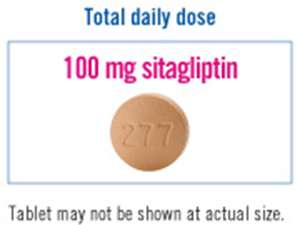Sitagliptin gives insulin a boost so that more sugar can be processed out of the bloodstream. The drug appears to be safe for use by HIV-positive people at risk for diabetes.
(Medical Xpress)—People with HIV have an elevated risk of heart attacks, diabetes and insulin problems. To compound matters, there are not many drug options to prevent those secondary problems because of concerns that they will weaken the immune system.
But a new study by researchers at Washington University School of Medicine in St. Louis has shown that a diabetes drug appears to be safe in HIV-infected patients and does not adversely affect their immune systems.
The research appeared in the February issue of the Journal of Clinical Endocrinology & Metabolism.
"The drug we studied, sitagliptin, was developed for type 2 diabetes and has been on the market since 2006, but it hadn't been tested for safety in HIV," says senior investigator Kevin E. Yarasheski, PhD. "In our small study, the drug seems to be safe. Now, it needs to be tested in people who are HIV positive and have metabolic problems to see whether it can reduce their likelihood of developing diabetes."
Most people with HIV are treated with drug "cocktails" that keep levels of the virus low. The use of these drug combinations means that HIV is no longer a death sentence for most patients and can be managed as a chronic condition.
However, living with HIV and the required drug therapy increases the risk for cholesterol abnormalities and diabetes, and those problems elevate the risk for heart disease. The result is that patients taking therapy for HIV infection are almost twice as likely as the rest of the population to develop diabetes or have a heart attack, often at a young age, highlighting the need for safe and more effective treatments.
The study involved 20 HIV-positive male and female volunteers already taking HIV-drug cocktails to stabilize their immune systems. In addition, the participants either received sitagliptin or an inactive placebo for up to six months. Throughout the study, researchers assessed immune function by a standard measure: counting levels of a key immune cell called CD4+ T-cell.
"Everyone came into the study with a viral load below the level that could be detected, and they all had healthy CD4 counts," Yarasheski explains. "Their viral loads remained undetectable throughout the study, and their CD4 counts did not decline."
The drug, taken by mouth, is from a class of drugs called DPP4 inhibitors that process hormones produced in the gut after a meal to help insulin store blood sugar.
"The drug gives insulin a boost," Yarasheski explains. "It lengthens the time insulin stays active in the body, so more sugar can be processed out of the bloodstream. But studies in animal and cell models have found this class of drugs also has some potentially negative effects."
Namely, drugs like sitagliptin have molecular targets on cells that influence insulin and on some immune cells, so the researchers wanted to ensure that the drug didn't weaken the immune system in people with HIV.
"The fear was that if we gave HIV patients this drug, it could alter their already compromised immune systems," says Yarasheski, a professor of medicine, of cell biology and physiology and of physical therapy. "But the results of our study suggest that doesn't happen."
The researchers now are investigating whether sitagliptin, like some other diabetes drugs, can lower diabetes risk in people who have HIV and risk factors, such as glucose intolerance and abnormal lipids. That could not be evaluated in the pilot safety study because those participants had not yet developed high blood glucose or high cholesterol.
More information: Goodwin, S. et al. Dipeptidyl peptidase IV inhibition does not adversely affect immune or virological status in HIV infected men and women: a pilot safety study. Journal of Clinical Endocrinology & Metabolism, vol. 98 (2), pp. 743-751. Feb. 2013
Journal information: Journal of Clinical Endocrinology & Metabolism



















